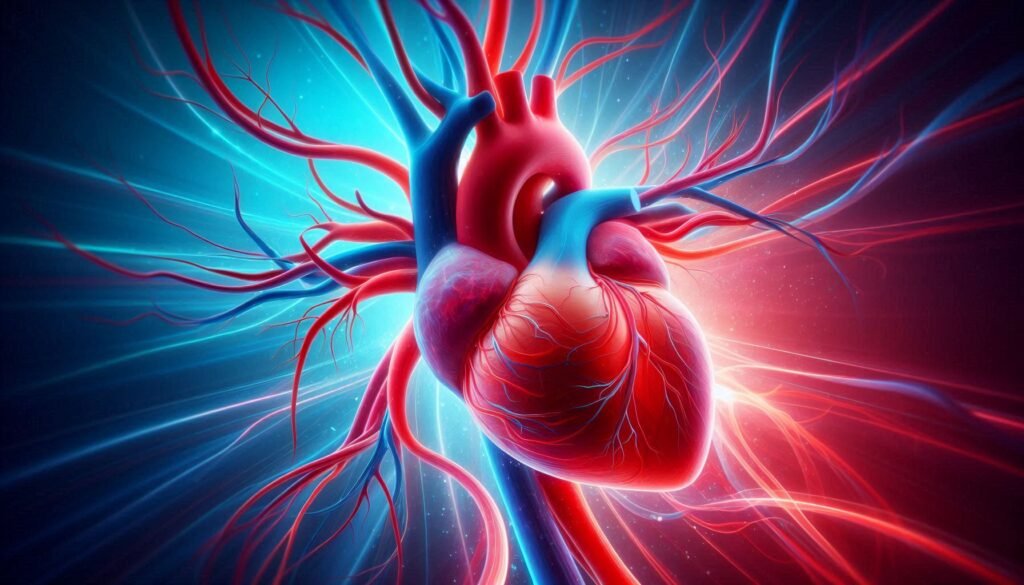Introduction
Hypertensive cardiovascular disease is a condition that quietly develops over many years due to unmanaged high blood pressure. It affects the heart and blood vessels, potentially leading to severe health problems. In this discussion, we will explore the intricacies of this silent threat.
What Is Hypertensive Heart Disease?
Hypertensive heart disease refers to a collection of medical problems that arise when chronic high blood pressure, defined as consistently having readings higher than 120/80 mmHg, puts a strain on the heart. As people age and continue to experience high blood pressure, their risk of developing heart disease increases. Here are some key points to understand about this condition:
Heart Failure:
When high blood pressure is persistent, it makes it harder for the heart to pump blood effectively. This constant pressure causes the heart muscle to thicken and weaken over time, which can potentially lead to heart failure. Heart failure is a condition where the heart is unable to meet the body’s demands for blood and oxygen, resulting in fatigue, shortness of breath, and fluid buildup in various parts of the body.
Coronary Artery Disease:
High blood pressure can narrow and damage the arteries that supply blood to the heart. This reduction in blood flow can cause chest pain, known as angina, or irregular heart rhythms, also called arrhythmias. These conditions can severely impact the quality of life and increase the risk of heart attacks.
Left Ventricular Hypertrophy:
Due to the increased pressure exerted by high blood pressure, the heart muscle may enlarge. This condition, known as left ventricular hypertrophy, affects the heart’s ability to function properly. An enlarged heart muscle can become stiff and less efficient at pumping blood, leading to further complications.
Complications of Hypertensive Heart Disease
Heart Failure:
When the heart cannot pump blood efficiently, heart failure occurs. Proper management of high blood pressure can significantly reduce the risk of developing heart failure. Individuals with heart failure often experience symptoms such as persistent coughing, swelling in the legs and ankles, and difficulty breathing, especially when lying down.
Arrhythmias:
Irregular heart rhythms, or arrhythmias, can result from the strain on the heart caused by high blood pressure. These arrhythmias can range from harmless to life-threatening, depending on their nature and severity. Symptoms may include palpitations, dizziness, and fainting.
Stroke:
High blood pressure increases the risk of stroke by damaging blood vessels. When blood vessels in the brain are weakened or blocked, it can lead to a stroke, which can cause significant neurological damage. Stroke symptoms may include sudden weakness or numbness on one side of the body, confusion, trouble speaking, and loss of coordination.
Ischemic Heart Disease:
Reduced blood flow to the heart can lead to ischemic heart disease. This condition occurs when the heart muscle doesn’t get enough oxygen-rich blood, often resulting in chest pain and discomfort. If left untreated, ischemic heart disease can progress to a heart attack, which is a medical emergency.
Sudden Cardiac Death:
In severe cases, hypertensive heart disease can lead to sudden cardiac death. This is an unexpected, fatal event caused by a sudden loss of heart function, often triggered by an arrhythmia or heart attack.
Prevention and Management
Lifestyle Changes:
Making certain lifestyle changes plays a crucial role in preventing and managing hypertensive heart disease. Regular exercise helps maintain a healthy weight and strengthens the heart. A heart-healthy diet, rich in fruits, vegetables, whole grains, and lean proteins, can lower blood pressure and reduce the risk of heart disease. Managing stress through techniques such as meditation, yoga, or deep breathing exercises is also beneficial.
Medications:
For many individuals, healthy lifestyle changes alone may not be sufficient to control high blood pressure. Antihypertensive medications can help regulate blood pressure and reduce the strain on the heart. These medications may include diuretics, beta-blockers, ACE inhibitors, and calcium channel blockers, among others. It is essential to follow the prescribed medication regimen and consult a healthcare provider regularly.
Regular Check-ups:
Monitoring blood pressure and seeking medical advice are essential steps in managing hypertensive heart disease. Regular check-ups with a healthcare provider can help track blood pressure levels and detect any early signs of heart disease. Early intervention and treatment can prevent complications and improve outcomes.
Conclusion
Hypertensive heart disease is a serious condition that requires attention and proactive management. By understanding its risks and adopting a heart-healthy lifestyle, we can protect our hearts and live longer, healthier lives. Regular exercise, a balanced diet, stress management, and appropriate medication are key components in preventing and managing this silent threat. Regular medical check-ups and monitoring are also vital to ensuring early detection and effective treatment. Taking these steps can significantly reduce the risk of developing hypertensive heart disease and its associated complications, leading to a better quality of life and improved overall health.
